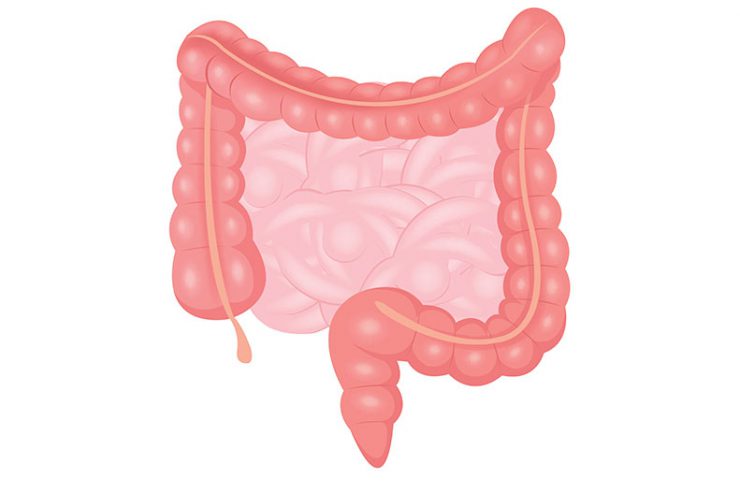Ever wonder how all that food you eat turns into the energy you use every day? You might not think about your intestines very often, but they’re probably at work right now, helping your body absorb needed nutrients.
Your intestines are a long continuous tube starting at the end of the stomach and running all the way to the anus.
Intestines are the main organs that absorb essential nutrients from the foods you eat. They form the lower opening of the digestive tract, collecting nutrients not absorbed by the liver, gallbladder, pancreas, or stomach. Broken up into the small intestine and the large intestine, both have very important roles in how your body works.
Below, you’ll find information about these organs that will help you understand their important roles.
Never Miss a Beat!
Subscribe to Our HealthBeat Newsletter!
Thank you for subscribing!
You can now select the specific newsletters you'd like to receive.
You are already subscribed.
Subscribe to more newsletters in our email preference center.
Sorry, an error occurred. Please try again later.
Get Healthy Tips Sent to Your Phone!
What Is the Small Intestine?
The longer of your two intestines, your small intestine is between 20 and 30 feet long and absorbs most of your food. There are three major sections of your small intestine which include:
- Duodenum: Mixes semi-digested food with bile from your gallbladder, liver, and pancreas to break down food further.
- Jejunum: Absorbs fatty acids, sugars, and amino acids.
- Ileum: Absorbs most of the nutrients before passing food along to the large intestine.
The walls of the small intestine are responsible for water absorption and puts nutrients into the bloodstream. The muscles around the small intestine push digested food along the intestines, through a process called peristalsis.
What Is the Large Intestine?
After passing through your small intestine, food then moves to the large intestine. The large intestine actually surrounds much of the gastrointestinal tract and covers the outer perimeter of your abdomen. Around five feet long, the large intestine absorbs salts and liquid left over from the digestive process.
Most nutrients are already absorbed by the time food enters your large intestine. Some substances are left over, including:
- Fiber.
- Plant material (which is hard to digest).
- Dead cells.
- Water.
- Bile pigments.
After passing through the colon for reabsorption, these substances exit your body in the form of waste through your anus.
Common intestinal diseases and conditions
Your intestines have the largest surface area in your body, around 250 square meters, which allows your body to achieve maximum food absorption. Many diseases can affect your intestines, causing painful symptoms, like diarrhea, fever and fatigue, abdominal pain, cramping, weight loss and reduced appetite, and more.
Some of these disorders include:
- Inflammatory bowel disease, which is a broad term for any disease that causes irritation or inflammation of the intestines. The two most common are Crohn’s disease, usually affecting the small intestine and ulcerative colitis which affects the large intestine.
- Colon polyps which are growths on the interior of the colon that can lead to bleeding from the rectum and could be an early indicator of colorectal cancer.
- Functional bowel disorders, including constipation and irritable bowel syndrome (IBS) which is indicated by repeated pain in the abdomen, diarrhea, or constipation with these symptoms occurring together and consistently.
- Diverticular disease which is when small sacs form and push their way through weak points of the colon.
- Short bowel syndrome which typically occurs in people whom have had lengths of their intestines removed. This condition effects people by limiting the amount of nutrients they can absorb from their food.
Medical or Surgical Treatment of Intestinal Failure
While many intestinal diseases and conditions can be treated with medicines, lifestyle changes, and other therapies, some diseases may require an intestinal transplant. In the transplant, the diseased section of intestine is removed and replaced with a healthy donor’s intestine. Although it is considered a major surgery, many patients are able to restore their normal diet. Your transplant team will talk with you about of all the risks and benefits of the surgery.
UPMC intestinal transplant teams offer a multidisciplinary approach making sure all aspects of your care are treated. For more information or to make an appointment please call 412-647-5800 or visit the UPMC Transplant Services website.
Editor's Note: This article was originally published on , and was last reviewed on .
About Digestive Disorders
UPMC Digestive Health Care cares for a wide range of gastrointestinal (GI) conditions and diseases, from diagnosis to treatment. Whether your digestive condition is common or complicated, our experts can help. Upon referral from your physician, we coordinate your testing and treatment. If you have a complicated condition, we can refer you to one of UPMC’s digestive health centers of excellence. Find a GI doctor near you.
